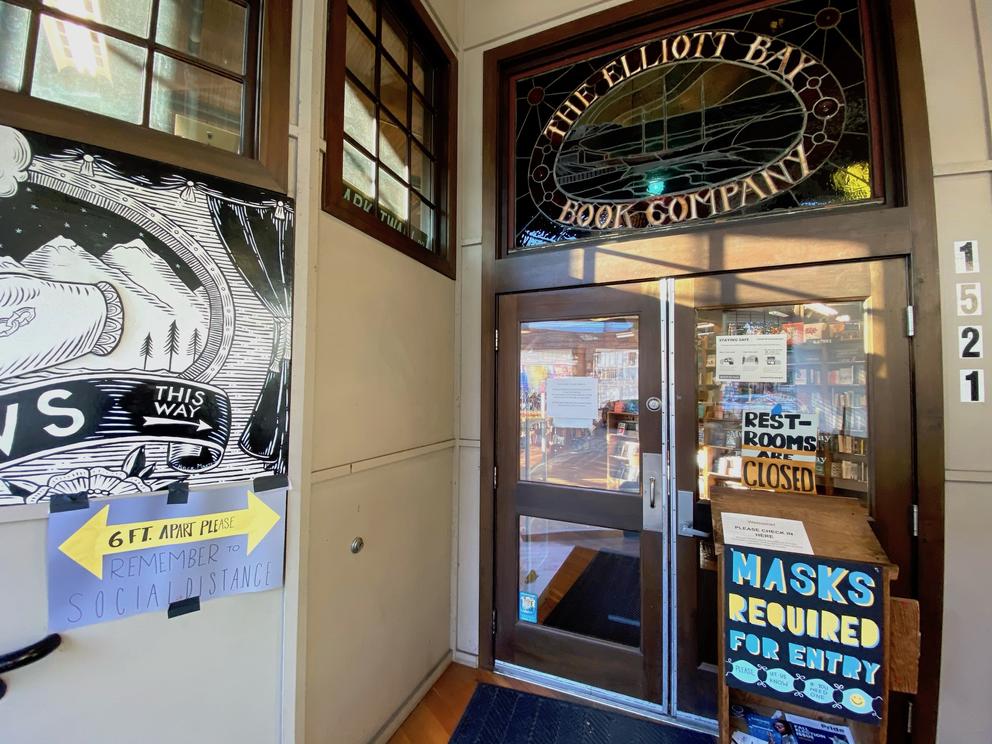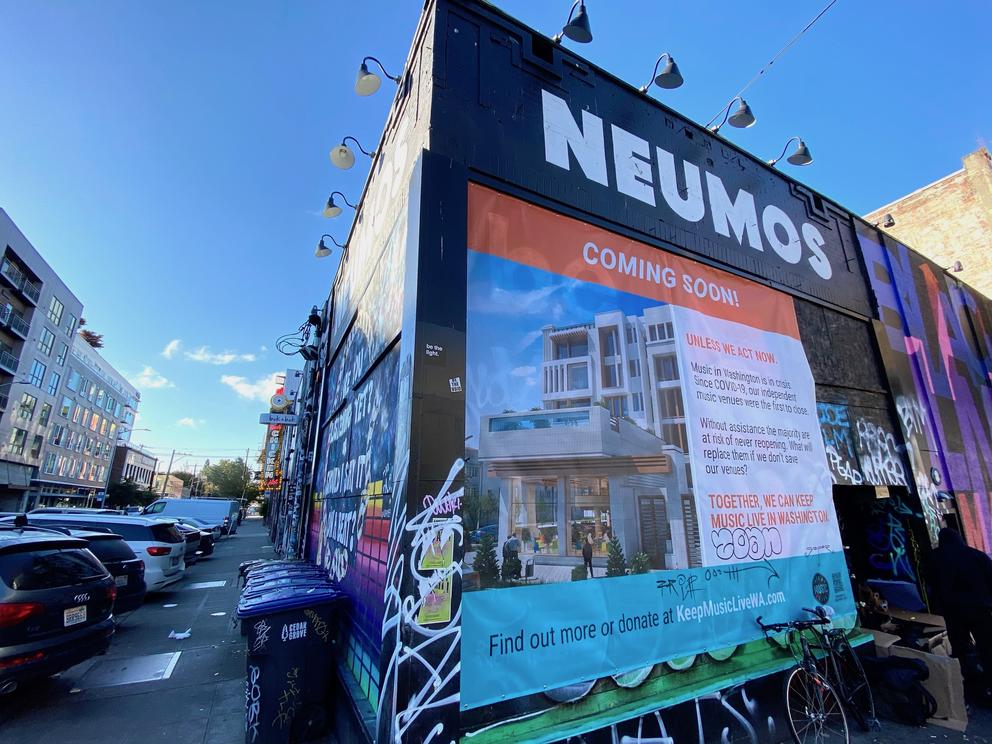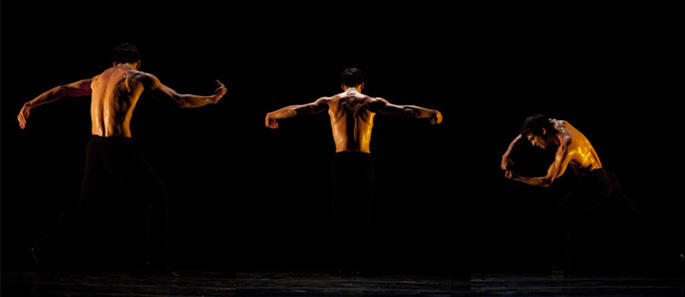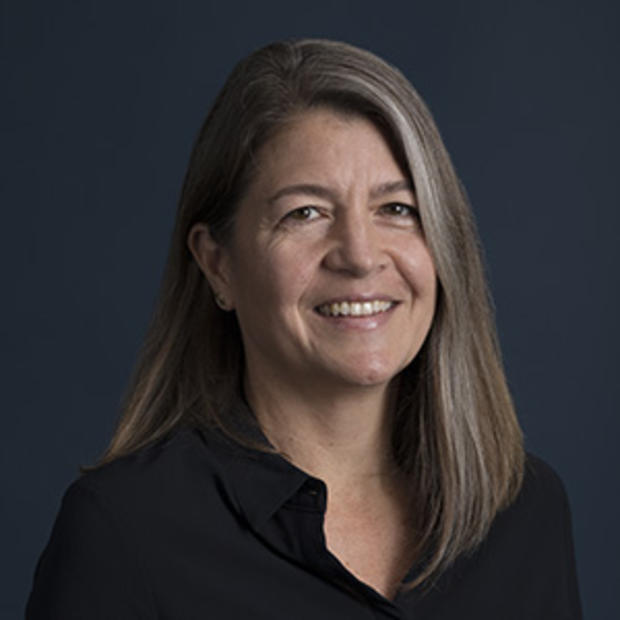I miss the simple pleasure of sitting in a room full of book nerds, listening to other book nerds read aloud. But a literary reading is an arts event that works pretty well in cyberspace. For one thing, we can see the reader’s facial expressions up close, which isn’t always possible at crowded venues. And my favorite silver lining is the glimpse we sometimes get into writers’ homes. Do they have plants? What’s tacked to the wall? Are books shelved neatly or piled willy-nilly?
This week offers plenty of chances to peek inside the natural habitats of writers, and something for every pandemic mood.
Fiction > Tommy Orange is the author of the gripping novel There There, an unforgettable story of urban Native culture, which is also this year’s Seattle Reads selection. (I loved this book!) He’s joined by Christina Roberts, director of the Indigenous Peoples Institute at Seattle University. (Seattle Public Library; Oct. 17, 7 p.m.)
Rock ‘n’ Roll > British music biographer Philip Norman shares insights from his new book, Wild Thing: The Short, Spellbinding Life of Jimi Hendrix. (Town Hall Seattle, Oct. 18, 11 a.m.) And if you’re a fan of the Seattle-raised rock legend, see also music writer Charles Cross’s argument for naming the West Seattle Bridge for Hendrix.
Magic > Spellbinding writers team up for Magical Language, Magical Plants, and the Magical in Between, a group reading with Seattle poet E.J. Koh, visual storyteller Mita Mahato and essayist Kathryn Neurnberger. (Hugo House, Oct. 20, 7 p.m)
Hilarity > Seattle writer Lindy West’s new book, Shit, Actually, is a welcome collection of her very funny movie reviews, which include ALL-CAPS DISBELIEF, pointed punctuation (?!?!?) and withering critique — such as her priceless summation of The Fugitive: “where women don’t do very much except die or sometimes hold a clipboard.” (Elliott Bay Books, Oct. 20, 7 p.m.)
Speaking of readings, you’ll want to do a close one of some new “proposed land use” banners popping up around town. Appearing on indie music venues including Neumos, Tractor Tavern and Sunset Tavern, the alarming renderings imply that condos are “coming soon!” to replace beloved spaces. But — at least for now — it’s just a viral campaign to warn people that the pandemic has pushed live music spaces to the brink of extinction.
Reminding us that it’s been more than 210 days since any live music shows have rocked our region, the Keep Music Live Washington campaign aims to raise $10 million to save our independent music spaces (and the artists who rely on them) so that someday we can rock out in person again.
Meanwhile, another of Seattle’s trademark creative industries — glass art — is taking advantage of the fact that galleries are open. Refract: The Seattle Glass Experience (Oct. 15-18) kicks off its second annual edition this week, with events both online and in person. (During the inaugural festival last year, Crosscut examined how the local glass industry is addressing its hefty carbon footprint.)
Check out work by contemporary Native glass masters Dan Friday (Lummi), Preston Singletary (Tlingit) and Raven Skyriver (Tlingit) at Stonington Gallery; a pleasingly peaceful show of translucent glass block towers by Seattle artist John Kiley at Traver Gallery; and a deep dive into classic Northwest glass at the new iteration of Gallery Mack, one of several brave galleries that dared to debut during the pandemic.
Is there a more apt ballet for our current moment than an extended, angsty solo called Mopey? German choreographer Marco Goecke has said this piece — which Pacific Northwest Ballet commissioned from him in 2004 — reflects an angry teenager alone in his room. It’s a fave of PNB audiences (myself included), but this year, when principal dancer James Moore twists, flaps and contorts himself within his dark isolation, we will feel it in our bones.
Mopey is part of the meaty mixed rep PNB is unveiling online, in lieu of the planned in-person season. Not content to simply roll archival footage, the company restaged and filmed several dance excerpts (specifically pieces that require few dancers to be onstage at once), using pandemic protocols inside a largely empty McCaw Hall theater.
This first installment (Rep 1, streaming Oct. 15-19) features snippets of ballets both classical and contemporary, including Swan Lake (Kent Stowell), Dances at a Gathering (Jerome Robbins), Jewels (George Balanchine), Red Angels (Ulysses Dove) and F O I L by PNB’s own Eva Stone, who before COVID-19 was leading the company’s innovative and inspiring program to foster young female ballet choreographers.
Of course it isn’t the same as being in the grand hall, feeling the incomparable vibration of live performance. But it’s a great way to grand jeté yourself back into the pleasurable space of watching professional dance (and a deal compared with tickets for live shows: the whole season is $190; individual tix are $29-$39). We all might feel a bit “mopey” right now, but this show reminds us we will once again “dance at a gathering” and sparkle like “jewels.”
Get the latest in local arts and culture
This weekly newsletter brings arts news and cultural events straight to your inbox.









